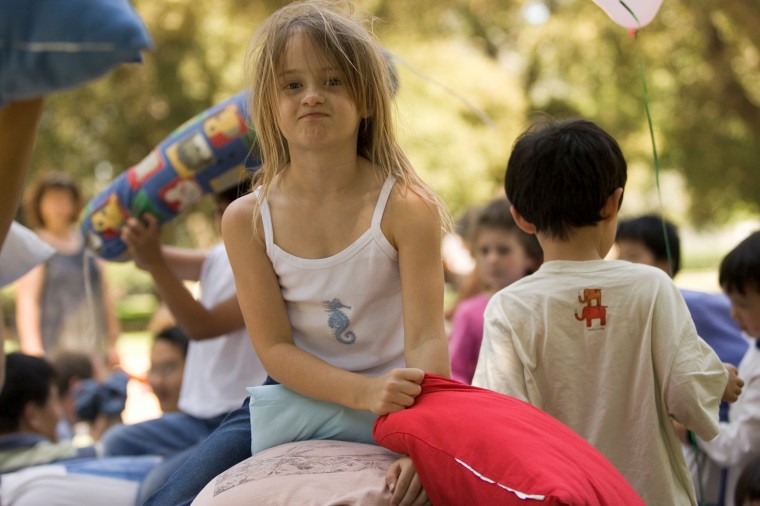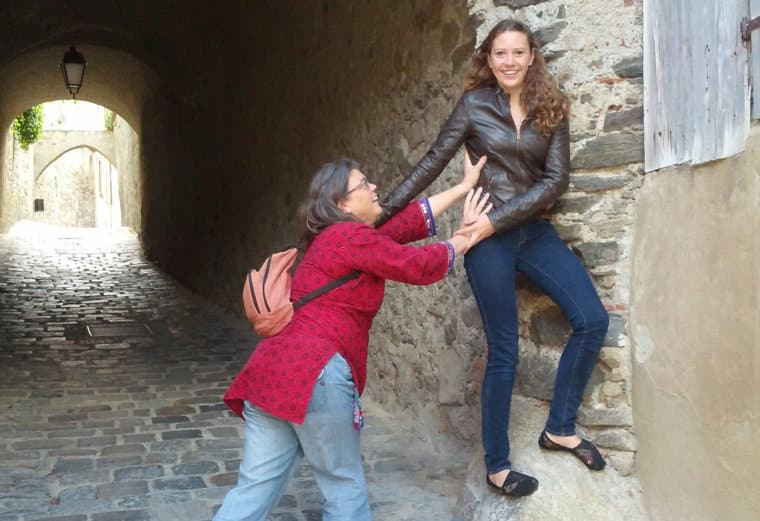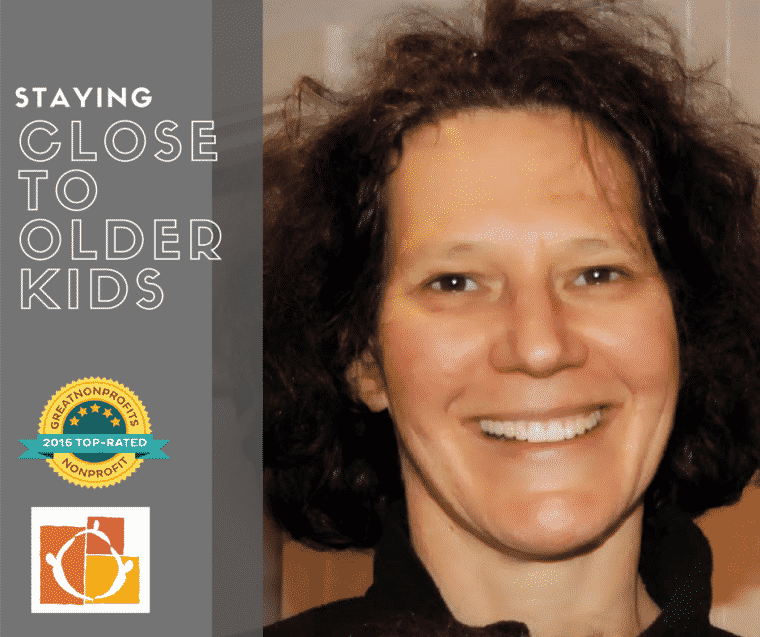We parents want to stay close to our young people as they get older. And they want us to stay close to them too, even though it doesn’t always feel like they do![1]
It’s a volatile mix
 By the time our children are 10,11,12, our relationship has history. There will be several communication grooves (which work well) and relationship ruts (which don’t work so well). We don’t always come to parenting with the freshness and hope we brought to our children’s early years. We expect more of them now they are older. But our expectations are often dashed, as they are buffeted by massive brain changes[2] and big hormonal shifts. They, too, have things they would like us to do, or not do, but they may not be able to express these directly or politely. And let’s face it, teens get a bad rap. In general, our culture has low expectations of them, and a dim view of what they have to offer.
By the time our children are 10,11,12, our relationship has history. There will be several communication grooves (which work well) and relationship ruts (which don’t work so well). We don’t always come to parenting with the freshness and hope we brought to our children’s early years. We expect more of them now they are older. But our expectations are often dashed, as they are buffeted by massive brain changes[2] and big hormonal shifts. They, too, have things they would like us to do, or not do, but they may not be able to express these directly or politely. And let’s face it, teens get a bad rap. In general, our culture has low expectations of them, and a dim view of what they have to offer.
Connection is vital
A sense of connection with the adults who care for them is vital to young people of all ages. That is no less true now that your child is older. While things may not be as easy between you and your pre-teen, the fact is they still want and need a deep sense of connection with you.
Often, and especially once our children get older, we are tempted to focus on all the things that are going wrong, not being done, or could be improved. We encounter difficulties in our relationship with our older children, and we immediately start worrying: is this a sign of things to come? Will they ever be able to take responsibility for themselves? Are they going to end up screen- or drug-addicted for life?
The truth is that “parent-child connectedness is the single strongest indicator that an adolescent will reach adulthood without experiencing teen pregnancy or violence, without becoming addicted to drugs or tobacco, and without dropping out of high school.” [3] The Listening Tool of Special Time is a very effective way to build that connection.
Things are changing – but your pre-teen still wants you
 When your children are little, you are front and centre. In the pre-teen years, you shift to the side – you are still important, but not quite so central.[4] And by the time your child reaches the teen years, you are more like the heat in the room – she won’t necessarily notice you are there, but if you are not, things get pretty tight, pretty fast. At each stage, you are just as important to your child as you ever were, but your role is different.
When your children are little, you are front and centre. In the pre-teen years, you shift to the side – you are still important, but not quite so central.[4] And by the time your child reaches the teen years, you are more like the heat in the room – she won’t necessarily notice you are there, but if you are not, things get pretty tight, pretty fast. At each stage, you are just as important to your child as you ever were, but your role is different.
Whatever it looks like, as they move into later childhood and the teen years, we are still VITALLY IMPORTANT to our young people. Ellen Galinsky, in a study called “Ask the Children”, conducted surveys and interviews with hundreds of young people aged between 8 and 18 and their parents. She says:
“There's a feeling sometimes among parents that when your kids turn into teens, that you've done your job in a sense, that it's the peers who have the greatest influence, and that your influence is a lot less. That's not what I heard from teens, particularly if they have a halfway decent relationship with their parent; which doesn't mean that you don't fight or disagree or they don't make your life miserable. It doesn't mean that. But if they feel like they're respected, if they feel like they're listened to, if they feel like they're valued, they really want adults to help shape their views about world. They want adults to tell them about the world and how it works.”[5]
Getting the Relationship Bank Balance Right
 Building, repairing and maintaining our teens’ sense of connection with us is vital to their development. Focusing on connection is like putting “money in the bank” – building credit that can be used when times are tough. Think of it this way: we must provide guidance and limit-setting to our children as they grow older, but every time we step in, we use up “emotional credit” in our “relationship bank.” We must use it carefully and judiciously. And we need to be looking to build up credit whenever we can – we don’t know when we will need to make a withdrawal from the “relationship bank”. As our children move towards adolescence, there is often less “credit in the bank” anyway. They are launching a huge physical and psychological shift. And we, often, are tired and a bit depleted. Plus, our children’s approaching adolescence has an uncanny way of reminding us of our own teenage years in ways that can impair our judgment.
Building, repairing and maintaining our teens’ sense of connection with us is vital to their development. Focusing on connection is like putting “money in the bank” – building credit that can be used when times are tough. Think of it this way: we must provide guidance and limit-setting to our children as they grow older, but every time we step in, we use up “emotional credit” in our “relationship bank.” We must use it carefully and judiciously. And we need to be looking to build up credit whenever we can – we don’t know when we will need to make a withdrawal from the “relationship bank”. As our children move towards adolescence, there is often less “credit in the bank” anyway. They are launching a huge physical and psychological shift. And we, often, are tired and a bit depleted. Plus, our children’s approaching adolescence has an uncanny way of reminding us of our own teenage years in ways that can impair our judgment.
And don’t lose heart: if you have an older teen and your relationship account is already overdrawn, research suggests that it isn’t too late to begin putting deposits into your “relationship bank” with your child.[6]
The power of attention
The attention we give to things matters. And it is a precious resource. The research is clear that multitasking doesn’t really work: our minds can’t function well when we are trying to pay attention to a number of things at a time[7]. But attention – giving another person our full attention – is one of the building blocks of connection:
“We all know the experience of sitting in front of someone who we are having a conversation with but we notice they have drifted off. Their physical body may not have moved but their eyes seem to recede in some way, and we know attention has gone. And so not only do we feel not heard we actually feel disconnected. So attention is very much a physical force that connects us. And therefore when it flows well, you do find people feel more strongly connected.”[8]
In recent years, I’ve become chronically distracted (I’m sure my smart-phone doesn’t help!). Lately my daughter has been complaining at me “Mum, you aren’t paying attention.” She adds, I’m ashamed to say, “Mum, put your phone away!” Special Time is the way I have made sure that in the thick of it all, I pay my daughter the attention she needs for our relationship to stay strong, and for her to feel she really has my backing as she begins to venture further from home and takes on the bold new experiments that are part of adolescence.
Special Time – money in the bank
![]() Special Time is a vital way to build and maintain connection and closeness. Special Time is the regular commitment by an adult to spend time with a young person delighting in doing just what they want. We put away distractions, we give our child our full attention, we don’t try to direct the time together and we don’t offer judgment or criticism. We make it a “trouble-free zone,” careful not to bring up sore topics (although our child may choose to raise them!).
Special Time is a vital way to build and maintain connection and closeness. Special Time is the regular commitment by an adult to spend time with a young person delighting in doing just what they want. We put away distractions, we give our child our full attention, we don’t try to direct the time together and we don’t offer judgment or criticism. We make it a “trouble-free zone,” careful not to bring up sore topics (although our child may choose to raise them!).
It is a powerful way to build emotional safety into our relationships with our children. A sense of safety — that we love our child no matter what — is a precious commodity at any stage of parenting. It allows our children to feel safe enough to tell us what is really going on for them and to ask for help when they need it. And it buffers and balances the times when we need to provide necessary course corrections if our pre-teen or teen has gone off-track. This kind of emotional safety can be in short supply as our children get older.
Announce and Time It
When beginning it is important to announce and time Special Time. And you don’t have to call it Special Time. You and your child may want to think up a name that you would like to use. The important thing is that you both be clear about what it involves – your undivided attention on your child as they lead the way and your enthusiasm for whatever they want to do.[9]
Let your pre-teen or teen know that you’d like to have “Special Time” with them and how long it will be for. With an older child, you will need to consider offering at least 30 minutes[10], and let them know ahead of time if there is a limit on going places or spending money.
Having a name for this time together has great benefits. It provides a mutual agreement and understanding of what Special Time is and how long it is going to last. This will help your child understand that it is “protected time” when they can really count fully on our attention. And it will help you keep your end of the bargain, sticking with them even if they are doing something you don’t really want to do.
 Stating your limits – around time, travel, and money- ahead of time avoids getting caught in a situation where you are caught having to say “no” instead of “yes” in Special Time. It will also give your child a chance to think about how they want to work within these limits, get upset about them, or make an alternative proposal. And you may need to flex – if there is not enough time this week to travel to the mall and go on a shopping expedition, is that something you could find the time to do once every couple of months or so?
Stating your limits – around time, travel, and money- ahead of time avoids getting caught in a situation where you are caught having to say “no” instead of “yes” in Special Time. It will also give your child a chance to think about how they want to work within these limits, get upset about them, or make an alternative proposal. And you may need to flex – if there is not enough time this week to travel to the mall and go on a shopping expedition, is that something you could find the time to do once every couple of months or so?
Here’s how it can work
Deciding to do Special Time with your older child can serve as a circuit breaker for difficulties in your relationship.
A mother came to me about six months ago and was locked in a series of battles with her nine-year-old daughter over everyday issues. Her daughter was “talking back” to her, they couldn’t sit at a meal together, she was getting in trouble at school. This mother was very distressed by this, had tried time-outs, punishments and rewards, and nothing was working.
I recommended that for a couple of weeks she just stop having these arguments, and instead organise a couple of days where they got to spend a few hours together doing just what her daughter wanted to do. I suggested at least some of this be formal “Special Time” so that her daughter really “got” that her mum was prepared to put her in charge of the relationship for a while. This mother had to have quite a few Listening Partnerships where she ranted and raved about her daughter’s bad behaviour, and about how worried she was about letting her daughter “get away with it”. But in Special Time, she did not mention any difficulties, raise any sore issues, or try to pry or give advice. She just put her full attention on her daughter, delighted in her, “walked alongside her”. I think they went shopping one time, and another time her daughter did several things including showing her mother all her favourite music videos on You Tube.
The mother texted me the other day and said, “I wanted to tell you, we have this week been all sitting down at the table to dinner together, and everyone has been talking and listening about how their days have gone. My daughter wanted us all to talk about something we had learned in the day. It was great!”
They need to negotiate more
As they move out of early childhood our children are developmentally at a point where they need to have more control over when and where things happen. Special Time is an opportunity to give a child of any age this kind of control, at least for a while. Older children may choose to control whether, and on what terms Special Time will happen at all.
My daughter is twelve, and I can no longer just bounce up and offer Special Time when it suits me and my schedule, or openly offer it as a way to defuse a power struggle or difficulty. I need to come at it more subtly, and choose times when she is free and receptive. In particular, I need to be mindful of how much more important her peer relationships are, and work out times to offer my attention so she doesn’t have to choose between me and her friends.
If your offer, made in this very up-front way, is rebuffed, try offering “unannounced Special Time.”
Unannounced Special Time
 You can still hold to the general principles of Special Time – a time to notice and appreciate your child, put aside your concerns and preoccupations, and follow their lead. But you might not want to announce it, or draw attention to yourself. If you come at it directly, your offer to connect may pull up the defensiveness, fear of criticism, or a wall of feelings which your pre-teen or teen has had a tight lid on all day. Listening to those feelings isn't a bad thing at all. However, it is also important to figure out times when your child can tell you are really there, not wanting anything from them, quietly interested and appreciative.
You can still hold to the general principles of Special Time – a time to notice and appreciate your child, put aside your concerns and preoccupations, and follow their lead. But you might not want to announce it, or draw attention to yourself. If you come at it directly, your offer to connect may pull up the defensiveness, fear of criticism, or a wall of feelings which your pre-teen or teen has had a tight lid on all day. Listening to those feelings isn't a bad thing at all. However, it is also important to figure out times when your child can tell you are really there, not wanting anything from them, quietly interested and appreciative.
These are times when you’re quietly fishing for an opportunity to engage:
“Your teen might not take immediate advantage of your unspoken availability. He may look like he doesn’t notice. That’s fine. You’re learning to let him be in the driver’s seat during these unannounced Special Times. You are making a commitment in your mind and heart to offer your attention, and to trust him to take the offer eventually. Every time you hang around, content to be in your teen’s presence, you’re making it safer for your teen to eventually talk with you about important things.”[11]
What does this look like? One father recently told me this story:
“My daughter who is 13 has spent years watching a pre-teen television drama series about mermaids. She also likes to play around in the pool, but I have trouble joining her because I react badly to cold. And now that she is older and can swim well, I can let her go down to the pool without close supervision – a chance to get some job or household chore done! But recently when we were staying at a hotel there was a really well-heated pool. I hopped in with her, and she wanted to show me her “mermaid swimming.” Swimming underwater from one end of the pool to the other, she made it look really graceful and easy. Then she challenged me to do the same. She made it look so easy, I thought – “That will be no trouble!” and headed off down the pool. Well, it turns out that mermaid swimming is a fine art. I flipped and flapped and wriggled but only managed get halfway down the pool before surfacing gasping for air. She laughed, and proceeded to give me a lesson in mermaid swimming. I didn’t really get the hang of it, but what I did learn is that all these years in the pool, my daughter has been in training – to be a mermaid! Pity it’s not an Olympic sport – she’d definitely be in the running for a medal. A few weeks later, we started taking a regular evening walk together. While she would object loudly at the prospect, once we got walking she would chat happily about this and that. Recently, while walking, she wanted to know, with all seriousness: ‘If you had magical mermaid powers, would you want to be earth, water or fire?' Soooo sweet.”
At our place these days, I’m doing a lot more television watching that I ever thought I would. I don’t have an easy time with screens, so I’ve not come to this lightly. But my daughter shows me the programs she is interested in, and I learn about what she likes, and what she thinks, about the characters and the topics. I offer my opinion sometimes, but not much. I just do my best to “be” with her, without an agenda for this time.
A grand day out
It may also be helpful to find times for more extended, unstructured time with our children. This is one of my favourite Special Time with Teens stories. I’m not sure if she announced it as Special Time or not, but this mother goes against her usual inclination to direct and control her time with her boy. She follows his lead, and he finds something they can do where he is the competent and knowledgeable one, and he takes charge of the experience. And afterwards, closeness and trust between them flow.
If you aren’t able to announce the time you spend as Special Time (and that way, have you and your child notice that it has happened), then it is worth finding ways to gently refer back to these times spent together. You child’s emotional memory will hold the connection you have built, but research suggests that we remember what we have paid attention to. Quietly recalling and relishing the time spent together will reinforce it.[12] Deciding to do this is also good for you: it helps to focus your attention on connection side of your “relationship bank balance”. This will counter the tendency to be preoccupied with things which tend to damage a sense of connection (for instance, often noting what is wrong, or how your pre-teen is at fault, or what they have not done).
They may not take your offer the way you meant it
Developmental brain changes may also mean that your child may misread your communication – and your offer of Special Time – as hostile. As children move toward adolescence, the various parts of their brain start to develop unevenly. The prefrontal cortex, responsible for reasoning, balance and careful consideration of things, is the last to develop. And the limbic brain – in particular, the amygdala (which is involved in fear response) – is in overdrive. Research suggests that this can cause teens to misread even neutral cues and facial expressions as hostile.[13]
You'll need to be working in your Listening Partnerships on developing your best warm, relaxed tone and lining this up with your body language. And you’ll want to be working on how it feels to have your positive overtures met as if they were unfriendly!
Direct attention may be more than they can bear
The hormonal and physical changes they are going through, the rigour with which they measure themselves against their peers, and the deep need to be accepted at this age means that young people are accumulating big layers of embarrassment as they get older. At the same time, they have received, for years now, the message that offloading feelings is not a socially acceptable thing to do. So the emotional backpack they were carrying around as young ones is fast becoming an emotional straitjacket.
When we approach them with warmth and enthusiasm, as we did when they were little, the full-bodied connection we offer may ignite big feelings for our older children. We may have to come at it less directly– as the gentle heater in the room, rather than the open fire!
Your children will probably not reassure you that you are doing fine
When they were younger, our children offered kisses, cuddles and appreciations of us freely (I remember feeling it was almost cheating, like getting love “for free”). Parenting young children is peppered with sweet reassurances that they love us and want us. While research suggests our teens both need and want us, unfortunately, they are often less and less able to show us directly how much we matter to them. There are a whole number of reasons for this, not least of which is the huge brain reconstruction going on for them. A great deal of their energy and attention is focused inwards, in much the same way as it is for women during pregnancy. They don’t often have the wherewithal to reassure us that they still love us.
So at this stage, we need to give up on getting reassurance from our children about our parenting. We need to be patient, warm, and snuggle up for the long haul. A Listening Partner comes in handy – a regular exchange of listening time where we can work on our worries, concerns, and insecurities in the face of our children's coolness or crankiness. You will need to assume that Special Time is working, and that they want you around, even if you don't get glowing feedback. Having a Listening Partner can also help fill the need for appreciation that is often missing in parenting.
Getting support for yourself
It’s a big job to provide the guidance and encouragement your child needs as they navigate adolescence. At this time, more than any other, you will need more than “grit” to get through. We can’t keep pouring out attention and patience if we don’t replenish our own resources.
All parents need emotional support for the complex work we do. This is a time when, more than ever, we need a place we can be sure is confidential, where we can really tell it how it is, and know that we will not be judged or criticised. I’ve found Listening Partnerships to be absolutely essential for providing the emotional support I need as I work to have my own needs met, strive to understand my teen, keep from taking things personally, and every now and again, pry open the “black box” of my own adolescence to take a peek at what lurks there.
I’ve also found it very helpful to be part of a group of parents who are also striving to maintain connection and provide thoughtful guidance to our older children. Something special happens when we are able to notice that we are not alone, and when we have a place to share our heartbreaks, hopes and victories with parents on the same journey.
They say it takes a village to raise a child. By the time they are teens, most of us have found we have to create that village ourselves. I invite you to join us at the Hand in Hand Village. Hard jobs are always done better in company. Welcome!
Madeleine Winter is a Parent Coach and Hand in Hand Instructor in Sydney. You can learn more about building connection with your children, and the Listening Tools in the Hand in Hand Starter Parenting Class. You can find out about how to support your Tween or Teen here.
Check out the short online course for parents of 9 to 13 year olds, Raising Happier Tweens.
Madeleine loves to help: why not book a Free 20Minute Consultation, and Madeleine can help direct you to the best resources and support.
[1] I’m deeply indebted to Patty Wipfler, Founder and Program Director of Hand in Hand Parenting, for her deep and generous thinking about teens and their parents. I can recommend her booklet “Supporting Adolescents,” and a number of articles she has written. You can download a copy of the booklet here. It’s a great read. Wipfler, Patty Supporting Adolescents. Palo Alto: Hand in Hand, 2006. Print
[2] Siegel, D. (2013). Brainstorm: The power and purpose of the teenage brain (1st ed.). New York, New York: Jeremy P Tarcher/Penguin. Dr Dan Siegel, Professor of Psychiatry at UCLA describes the teenage brain as “a construction site”:
“Now, when it comes to teenagers, this flipping one’s lid is often seen as being a “crazy teenager.” But let’s make an agreement not to call this crazy; let’s call it what it is – remodeling and shifts in integration. In a construction site, sometimes the previously working plumbing and electricity are temporarily disabled. We don’t have to call that a faulty building – it’s just a reconstruction project. Remodeling has its inevitable downsides, for sure. For a short time, or for bursts of time, those utilities on the construction site are off-line. No effective electricity, no plumbing, no workable staircase. These are all temporary shifts in what works well. The good news is that remodelling is a process that will create new and improved ways of functioning. Remodeling is necessary to adapt the structure of our neural foundation to adjust to new needs, and remodelling in adolescence is necessary to adapt our human family to the new needs of a changing world.” P103-104.
[3] Idleman, Julianne. “The Cries that Bind: Connecting with Children.” Hand in Hand Parenting. Hand in Hand Parenting, 555 Waverley St., #25 Palo Alto, CA 94301 , n.d. Web. 06 Jan. 2017. <https://www.handinhandparenting.org/article/the-cries-that-bind-connecting-with-children/>.
[4] Wipfler, Patty Supporting Adolescents. Palo Alto: Hand in Hand, 2006. Print p19: “Building closeness is a bit like playing outfielder in a baseball game. Your readiness and attention are vital, but you can never predict exactly when you will be called upon, or when you’ll have the opportunity make a significant difference. Your readiness to care is your main responsibility. The rest is a unique and unfolding story.”
[5] Galinsky, Ellen. “Inside the Teenage Brain – Interview with Ellen Galinsky.” PBS. FRONTLINE+wgbh+Pbs Online. Broadcast 2002? Web. 24 Mar. 2015.<http://www.pbs.org/wgbh/pages/frontline/shows/teenbrain/interviews/galinsky.html>.
[6] Shellenbarger, Sue. “What Teens Need Most From Their Parents.” The Wall Street Journal. Dow Jones & Company, 09 Aug. 2016. Web. 11 Jan. 2017. <http://www.wsj.com/articles/what-teens-need-most-from-their-parents-1470765906>. “In a laboratory risk-taking test, teens who grew closer to their parents starting at age 15 showed less activation of a brain region linked to risk-taking and took fewer chances 18 months later.”
[7] Malcolm, Lyn, and Daniel Levitin. “The distracted mind.” Radio National. Australian Broadcasting Commission, 03 Sept. 2015. Web. 17 Jan. 2017. <http://www.abc.net.au/radionational/programs/allinthemind/the-distracted-mind/6663470>.
[8] Funnell, Anthony . “Attention / distraction.” Radio National. Australian Broadcasting Commission, 12 Oct. 2016. Web. 17 Jan. 2017. <http://www.abc.net.au/radionational/programs/futuretense/summer-attention-and-distraction/7926086#transcript>. Here he is interviewing Martina Sheehan, cofounder of an organisation called Mind Gardener, which helps people to prioritise what's important.
[9] You may already have a name for the time you spend together one-on-one. If you decide to keep using that name, then you will need to make sure that you are both clear that it is now time you will spend as if it were Special Time proper. When I introduce Special Time to parents for the first time, they often will say either “Oh! We already have that. We call it “Mummy Time (or whatever name they have for it)”, or (and this is most often parents of much younger children) “It all feels like Special Time – I’m with them all the time.” In both cases, the time together doesn’t include one or two of the elements that make Special Time work. Most often, it is that it is not timed. Amongst several other things, when you both are clear about how long Special Time will last, your children know how long they can really count on your undivided attention. When they know this, they can settle in, and begin to organise what they want to do with the time. It’s one of the key ways that Special Time builds emotional safety for our children. And for you, being clear about the time means that you commit to not stopping it on a whim, based on how you are feeling, but stick to your commitment to pay close and warm attention no matter what.
[10] I recommend that you find 30 minutes for Special Time with older children. For various reasons, it can take longer for them to get a sense of you being there for them. Plus, they may tend to have more complex and time consuming things they want to explore with you than a younger child might. That said, please don’t let this get in your way of doing Special Time – if all you can manage is five minutes of just enjoying your child while you give them your full attention, that will make a difference. In fact, building your capacity for Special Time is a bit like building muscle strength – the more you do it, the stronger you get. With Special Time, the equivalent of your “fitness coach” will be your Listening Partner or Parent Support Group. You can use your listeners to set your intention to do Special Time, and hold you accountable for doing it.
[11] Wipfler, Patty. “How Special Time Works with Teens.” Hand in Hand Parenting. Hand in Hand Parenting, 555 Waverley St., #25 Palo Alto, CA 9430, n.d. Web. 09 Jan. 2017. <https://www.handinhandparenting.org/article/how-special-time-works-with-teens/>.
[12] ] Burnett, Dean, Dr., and Lyn Malcolm. “The Idiot Brain.” Radio National. Australian Broadcasting Commission, 29 July 2016. Web. 09 Jan. 2017. <http://www.abc.net.au/radionational/programs/allinthemind/the-idiot-brain/7665560#transcript>.
[13] Wolfe, Pat, EdD. “The Adolescent Brain: A Work in Progress – Pat Wolfe – Mind Matters, Inc.” Pat Wolfe Mind Matters Inc. Mind Matters Inc, Sept. 2011. Web. 04 Jan. 2017. <http://patwolfe.com/2011/09/the-adolescent-brain-a-work-in-progress/>. See also Siegel, D. (2013), p 107
Save
Save
Save
